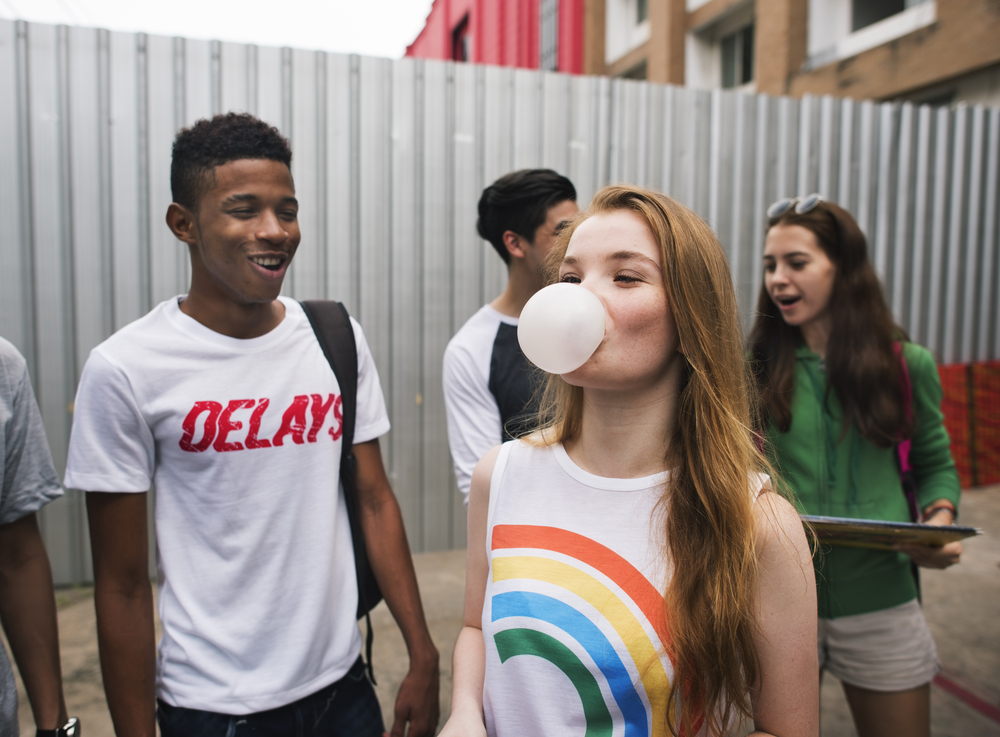
The chances are that your child will have inherited many of your physical traits and may be developing just the way you did as a teenager. Whether that means large breasts, big feet or being a slight framed late developer, they will absorb how you talk about your body and recognise your similarities. This is a good opportunity to be kind to yourself and your teenager by talking about your body with the respect and love it deserves. If you find this difficult, try to do it for your teenager, or at least avoid criticising your body in front of them.
As a parent, a negative body image can be quite a lot of baggage to unlearn. The good news is that once you learn to use respectful and loving words about bodies, it really begins to change your own perspective. This can help you to heal your negative attitudes that you may have picked up as a child – maybe from your own parents.
Focus on what your teenager’s body can do rather than what it looks like
Even if you are unable to join in and be active with your teenager, there is a lot you can do to support your teenage child’s body confidence in the way you discuss (or don’t discuss) their changing body.
Try to focus on what your teenager can do physically, rather than what they look like. When your teenager goes through a growth spurt they may become more clumsy and may lose confidence, especially if they is struggling if they do dance or play sports. Read our article on why teenagers are clumsy and how to support your teenager’s confidence through a clumsy period.
The language you use around food, weight, bodies and beauty will have informed your teenager’s attitudes to body confidence from childhood. Even if you’ve been negative in the past, your child’s adolescence is the perfect time to change. Be kind and warm to yourself, your teenager and those people around you and your teenager will be more likely to feel the same.
Using positive words such as:
‘strong’
‘graceful’
‘powerful’
These words help us feel positive. Negative words can be so damaging so try to avoid words like ‘disgusting,’ ‘pathetic’ and ‘gross’ when discussing your body, your teenager’s body or anyone else’s body. Ideally, don’t talk about bodies in this negative and disrespectful way if you can avoid it. It doesn’t help your mindset, and it certainly doesn’t help your listening teenager.
Even if your teenager is lucky and has clear skin and athletic prowess try not to constantly praise how they look. It can lead to an unhealthy obsession with looks. There are popular teenage Instagram stars saying how the pressure and obsession with selfies and the whole tyranny of #fitspo and unrealistic lifestyle and image obsession has overwhelmed them. Try to be a haven from that world to your teenager.
Teenagers still love to play games with their parents and siblings on occasion, whether it’s playing ‘one on one’ basketball in the garden, throwing a frisbee on holiday or deciding to do a 5Km run for a shared charity. Try to stay active and keep playing with your children and teenagers for the good of your physical confidence and the bond between you.
There are lots of local groups trying to encourage parents back into sports, so this can be a great opportunity to take up a game that you used to play when you were a teenager.